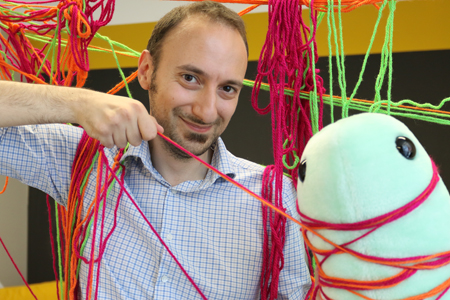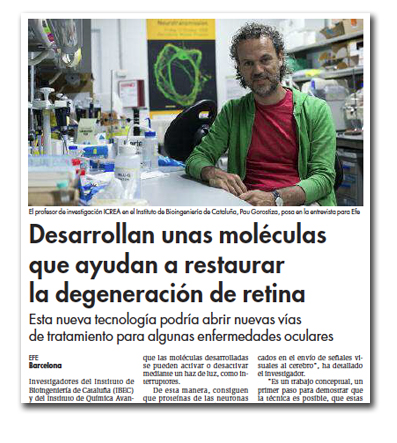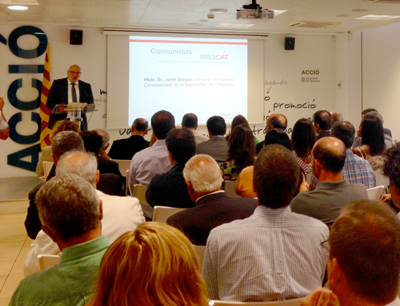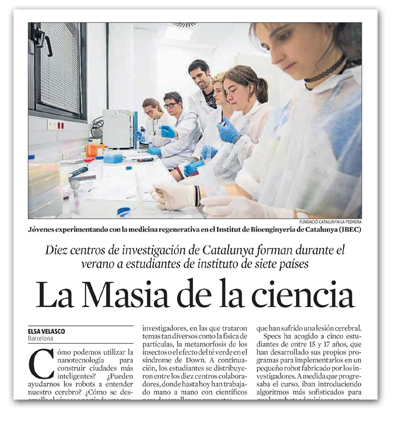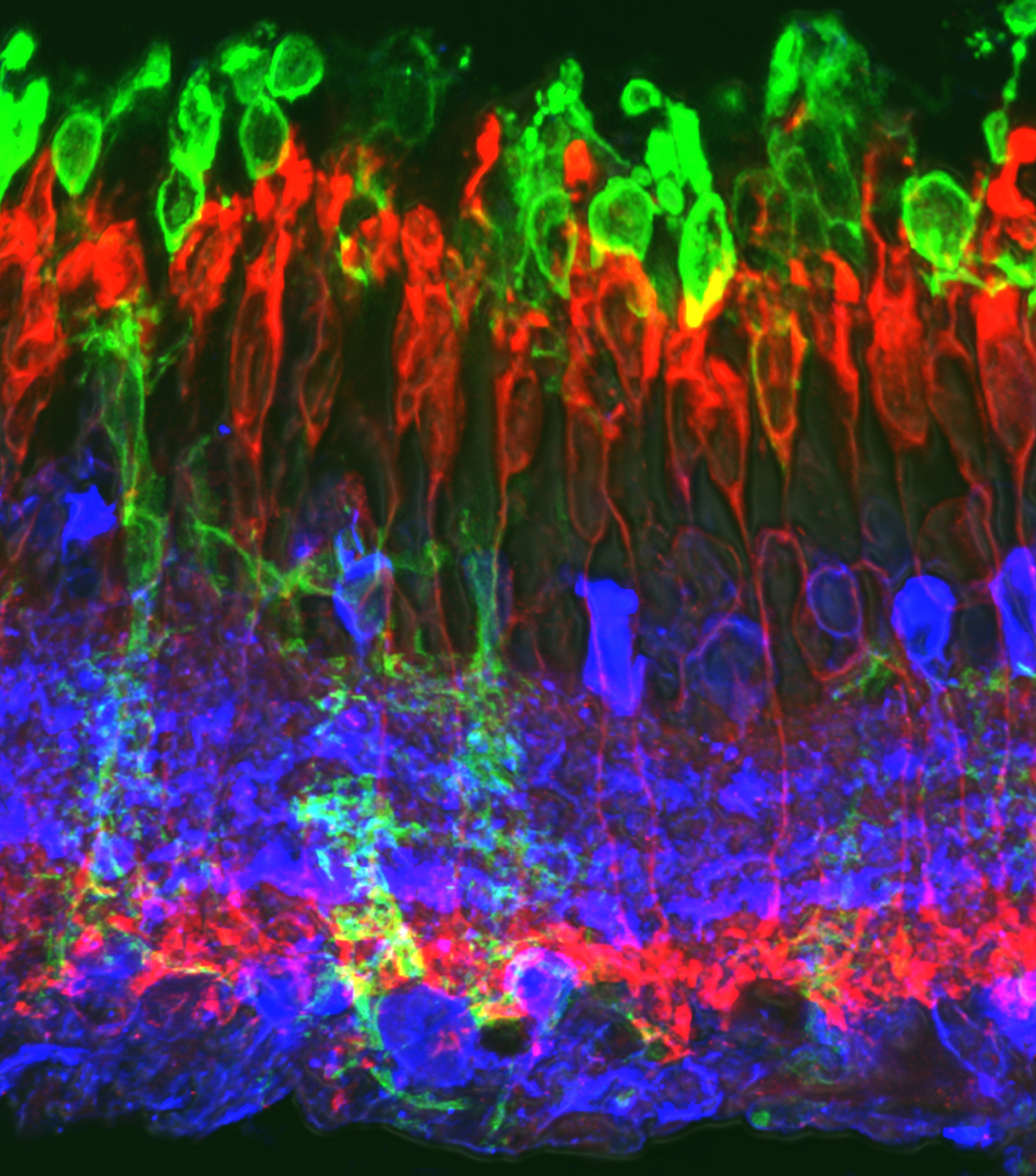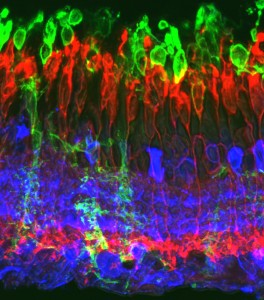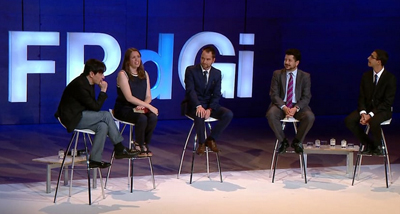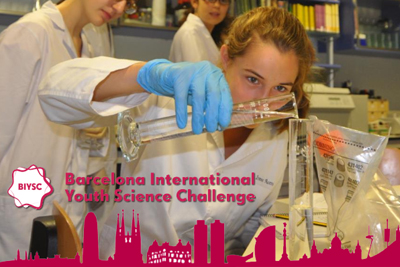Help make IBEC’s photo a winner!
 Lorenzo Albertazzi and ‘Gripin’ the virus have made it into the 2016 AXA Research Fund Photo Contest, a competition that challenges scientists to capture their AXA Research Fund project in a single image.
Lorenzo Albertazzi and ‘Gripin’ the virus have made it into the 2016 AXA Research Fund Photo Contest, a competition that challenges scientists to capture their AXA Research Fund project in a single image.
Lorenzo’s photo (left) – taken at IBEC with the help of the Communcications Team – shows him grappling with the ‘virus’, which have the ability to mutate, change, and become resistant to treatments.
With AXA funding, his research group at IBEC is creating resistance-free therapies based on nanofibers that can wrap around a virus like yarn, stopping disease from spreading. “I’d like viruses to be as big as the one in the photo,” says Lorenzo. “It would make our job a lot easier!”
The photo, along with 13 other semi-finalists, has been posted to a dedicated Facebook gallery at which the public can vote during September by “Liking” a photo.

